- Home
- Patricia Cornwell
Scarpetta 18 - Port Mortuary Page 12
Scarpetta 18 - Port Mortuary Read online
Page 12
“Drugs?”
“No evidence whatsoever. Submitted to testing when he confessed to the murder and was negative; even his hair was negative for drugs, for alcohol. His grad-school friend Dawn Kincaid is at MIT, and she and Johnny were working together on a project. She became so concerned about him she finally called his family. This was in December. Then a week ago, Johnny was admitted to McLean with a stab wound to his hand and told his psychiatrist that he’d murdered Mark Bishop, claiming he took the train to Salem and had a nail gun in a backpack, said he needed a human sacrifice to rid him of an evil entity that had taken over his life.”
“Why nails? Why not some other weapon?”
“Something to do with the magical powers of iron. And most of this has been in the news.”
I recall seeing something on the Internet about devil’s bone, and I mention that.
“Exactly. What iron was called in ancient Egypt,” Benton replies. “They sell devil’s bone in some of the shops in Salem.”
“Lashed together in an X that you carry in a red satin pouch. I’ve seen them in some of the witcheries. But not the same type of nails. The ones in the witcheries are more like spikes, are supposed to look antique. And I doubt they’re treated with zinc, that they’re galvanized.”
“Supposedly, iron protects against malevolent spirits, and thus the explanation for Johnny using iron nails. That’s his explanation. And his story’s completely unoriginal; as you just pointed out, it was one of the theories all over the news the days before he confessed to the murder.” Benton pauses, then adds, “Your own office has suggested black magic as a motive, presumably because of the Salem connection.”
“It’s not our job to offer theories. Our job is to be impartial and objective, so I don’t know what you mean when you say we suggested such a thing.”
“I’m just telling you it’s been discussed.”
“With whom?” But I know.
“Jack’s always been a loose cannon. But he seems to have lost what little impulse control he had,” Benton says.
“I think we’ve established that Jack is a problem I can no longer attempt to solve. What project?” I go back to what Benton mentioned about Johnny Donahue’s female MIT friend. “And what’s Johnny’s major?”
“Computer science. Since early last summer, he was interning at Otwahl Technologies in Cambridge. As his mother pointed out, he’s unusually gifted in some areas. ...”
“Doing what? What was he doing there?” I envision the solid façade of precast rising up like the Hoover Dam not far from where we just drove past, the part of Cambridge where the SUV with xenon lights was following us before it vanished.
“Software engineering for UGVs and related technologies,” Benton says, as if it is no great matter because he doesn’t know what I do about UGVs.
Unmanned ground vehicles. Military robots like the prototype MORT in the dead man’s apartment.
“What’s going on here, Benton?” I say with feeling. “What in God’s name is going on?”
7
The storm has settled in, the wind much calmer now, and the snow is already several inches deep. Traffic is steady on Memorial Drive, the weather of little consequence to people used to New England winters.
The rooftops of MIT fraternity houses and playing fields are solid white on the left side of the road, and on the other side the snow drifts like smoke over the bike path and the boathouse and vanishes into the icy blackness of the Charles. Farther east, where the river empties into the harbor, the Boston skyline is ghostly rectangular shapes and smudges of light in the milky night, and there is no air traffic over Logan, not a single plane in sight.
“We should meet with Renaud as soon as possible—the sooner, the better.” Benton thinks Essex County District Attorney Paul Renaud should know that there may be something more to Johnny Donahue’s confession, that somehow the Harvard senior and a dead man in my cooler could be connected. “But if this involves DARPA?” Benton adds.
“Otwahl gets DARPA funding. But it isn’t DARPA, isn’t DoD. It’s civilian, an international private industry,” I reply. “But certainly it’s closely tied to government through substantial grants, tens of millions, maybe a lot more than that, since their rather clumsy invention of MORT.”
“The question is what else they’re focused on. What are they focused on now that could have significance in all this?”
“I honestly can’t say, not for a fact. But you know the obvious just by looking at the place.” Were we to drive back toward Hanscom, we would pass within a mile of Otwahl Technologies and its adjoining superconducting test facility, a massive self-contained complex with its own private police force. “Neutron science, most likely, because of materials science and how it applies to new technologies.”
“Robotics,” Benton says.
“Robots, nanotechnology, software engineering, synthetic biology. Lucy knows something about it.”
“Probably more than something.”
“Knowing her, yes. A lot more than something.”
“They’re probably making damn humanoids so we never run out of soldiers.”
“They might be.” I’m not joking.
“And Briggs would know about the robot in this guy’s apartment.” Benton means the dead man’s apartment. “Because of video clips? What else about that? I wonder if he said something to Jack about it, called and alerted him by asking questions.”
I explain it further, giving a more detailed account of the man and the recordings Lucy discovered—recordings that Marino inappropriately e-mailed to Briggs before I had a chance to review them first, and when I did get a chance to see them, it was only superficially, en route to the Civil Air Terminal in Dover. I tell Benton all about the ill-fated six-legged robot, the Mortuary Operational Removal Transport, known as MORT, that is parked inside the apartment near the door, and I remind him of the controversies, of the disagreements I had with certain politicians and especially with Briggs over using a machine to recover casualties in theater or anywhere.
I describe the heartlessness, the horror, of a gas-powered metal construction that sounded like a chain saw lurching across the earth to recover wounded or dead human beings by grasping them in grippers that looked like the mandibles of a bull ant. “Think of the message it sends if you’re dying on the battlefield and this is what your comrades send for you,” I say to Benton. “What kind of message does it send to the victim’s loved ones if they see it on the news?”
“You used inflammatory language like that when you testified before a defense appropriations Senate subcommittee,” Benton assumes.
“I don’t remember what I said verbatim.”
“I’m sure you didn’t make any friends at Otwahl. You probably made enemies you have no idea about.”
“It wasn’t about Otwahl or any other technology company. All Otwahl did was create an unmanned robotic vehicle. It was people at the Pentagon that came up with its so-called useful purpose. I think originally MORT was supposed to be a packbot, nothing more. I didn’t even remember Otwahl was the company until tonight. They were never a preoccupation of mine. My disagreement was with the Pentagon, and I was going to stand my ground.” I almost say this time. But I catch myself. Benton doesn’t know about the time I didn’t stand my ground.
“Enemies who haven’t forgotten. Those kinds of enemies never forget. I’m sorry I wasn’t privy to all this when it was going on,” Benton says, because he wasn’t around when I was making enemies on Capitol Hill. He was in a protective witness program and not exactly in a position to give me advice or counsel or even assure me that he wasn’t dead. “You must have files on it, records from back then.”
“Why?”
“I’d like to take a look, get up to speed. It might explain a few things.”
“What things?”
“I’d like to look at what you have from back then,” Benton says.
Transcripts from my testimony, video recordings of the segments aired o
n C-SPAN: What I have would be in my safe in our Cambridge basement—along with certain items I don’t want him to see. A thick gray accordion file and photographs I took with my own camera. Bloodstained squares of white cardboard improvised before the days of FTA DNA collection kits, because if blood is air-dried it can last forever, and I knew where technology was headed. Plain white envelopes with fingernail cuttings and pubic combings and head hair. Oral, anal, and vaginal swabs, and cut and torn bloody underpants. An empty Chablis bottle, a beer can. Materials I smuggled from a dark continent half a world away more than two decades ago, evidence I shouldn’t have had, items I shouldn’t have had privately tested, but I did. I seriously consider that if Benton was aware of the Cape Town cases, he might not feel the same about me.
“You know the old saying, revenge is best served cold,” he goes on. “You fucked a huge multimillion-dollar project, a joint venture between DoD and Otwahl Technologies, and stepped on toes, and although a number of years have passed, I suspect there are people out there who haven’t forgotten, even if you have. And now here you are, working with DoD in Otwahl’s backyard. A perfect opportunity to calculate revenge, to pay you back.”
“Pay me back? A man dropping dead in Norton’s Woods is payback?”
“I just think we should know the cast of characters.”
Then we stop talking about it, because we have reached the girder bridge that connects Cambridge to Boston, the Mass Ave Bridge, or what the locals refer to as the Harvard Bridge or MIT Bridge, depending on their loyalties. Just ahead, my headquarters rises like a lighthouse, silo-shaped with a glass dome on top, seven stories sided in titanium and reinforced with steel. The first time Marino saw the CFC he decided it looked like a dum-dum bullet, and in the snowy dark, I suppose it does.
Turning off Memorial Drive, away from the river, we take the first left into the parking area, illuminated by solar security lights and surrounded by a black PVC-coated fence that can’t be climbed or cut. I dig a remote control out of my bag and push a button to open the tall gate, and we drive over tire tracks that are almost completely covered in fresh white powder. Anne and Ollie’s cars are here, parked near the CFC’s all-wheel-drive cargo vans and SUVs, and I notice one is missing, one of the SUVs. There should be four, but one of them is gone and has been since before it began to snow, probably the on-call medicolegal investigator.
I wonder who is on duty tonight and why that person is out in one of our vehicles. At a scene, or is the person at home, and I look around as if I’ve never been here before. Above the fence on two sides are lab buildings that belong to MIT, glass and brick, with antennas and radar dishes on the roofs, the windows dark except for a random few glowing dimly, as if someone left a desk light or a lamp on. Snow streaks the night and is loud like a brittle rain as Benton pulls close to my building, into the space designated for the director, next to Fielding’s spot, which is empty and smooth with snow.
“We could put it in the bay,” Benton says hopefully.
“That would be a little spoiled, since no one else can,” I reply. “And it’s unauthorized, anyway. For pickups and deliveries only.”
“Dover’s worn off on you. Am I going to have to salute?”
“Only at home.”
We climb out, and the snow is up to the ankles of my boots and doesn’t pack under them because it is too cold, the flakes tiny and icy. I enter a code in a keypad next to a shut bay door that begins to retract loudly as Marino and Lucy drive into the lot. The receiving bay looks like a small hangar sealed with white epoxy paint, and mounted in the ceiling is a monorail crane, a motorized lifter for moving bodies too large for manual handling. There is a ramp inside leading to a metal door, and parked off to the side is our white van-body truck, what at Dover we refer to as a bread truck, designed to transport up to six bodies on stretchers or in transfer cases and to serve as a mobile crime scene lab when needed.
As I wait for Marino and Lucy, I’m reminded I’m not dressed for New England. My tactical jacket was perfectly adequate in Delaware, but now I’m thoroughly chilled. I try not to think about how good it would be to sit in front of the fire with a single-malt Scotch or small-batch bourbon, to catch up with Benton about things other than tragedy and betrayal and enemies with long memories, to get away from everyone. I want to drink and talk honestly with my husband, to put aside games and subterfuge and not wonder what he knows. I crave a normal time with him, but we don’t know what that is. Even when we make love we have our secrets and nothing is normal.
“No updates except Lawless.” Marino answers a question no one asked as the bay door clanks down behind us. “He e-mailed scene photographs—finally. But says no luck with the dog. No one’s called to report a lost greyhound.”
“What greyhound?” Benton asks.
I was too busy describing MORT and didn’t mention much else I saw on the video clips. I feel foolish. “Norton’s Woods,” I reply. “A black-and-white greyhound named Sock that apparently ran off while the EMTs were busy with our case.”
“How do you know his name is Sock?”
I explain it to him as I hold my thumb over the glass sensor of the biometric lock so it can scan my print. Opening the door that leads into the lower level of the building, I mention that the dog might have a microchip that could supply useful information about the owner’s identification. Some rescue groups automatically microchip former racing greyhounds before putting them up for adoption, I add.
“That’s interesting,” Benton says. “I think I saw them.”
“He stared right at you as you were pulling out of the driveway in your sports car about three-fifteen yesterday afternoon,” Lucy tells him as we enter the processing area, an open space with a security office, a digital floor scale, and a wall of massive stainless-steel doors that open into cooler rooms and a walk-in freezer.
“What are you talking about?” Benton asks my niece.
“All that time in the car driving through a blizzard and you didn’t catch him up on things?” Lucy says to me, and she’s not easy to be around when she gets like this.
I feel a prick of annoyance even though she’s right. She knows you, too, enters my mind. She knows you just as well as you know her. She knows damn well when something is bothering me that I stubbornly keep to myself, and I’ve been bothered and feeling stubborn since I left Dover. It was stupid of me not to go into the sort of detail that Benton can do something with. I don’t know of anyone more psychologically astute, and he would have plenty to say about the minutiae picked up by the recorders concealed inside the dead man’s headphones.
Instead, I obsessed about DARPA because I was really obsessing about Briggs. I can’t get past what happened earlier today, about what happened decades ago, about how what he caused never seems to end. He knows about that dark place in my past, a place I take no one, and a part of me will never forgive him for creating that place. It was his idea for me to go to Cape Town. It was his goddamn brilliant plan.
“He and the greyhound walked right past your driveway just minutes before he died,” Lucy is telling Benton, but her gaze is steady on me. “If you hadn’t left, you would have heard the sirens. You probably would have headed over there to see what was going on and maybe would have some useful information for us.”
She looks at me as if she is looking at the dark place. It’s not possible she could know about it, I reassure myself. I’ve never told her, never told Benton or Marino or anyone. The documents were destroyed except for what I have. Briggs promised that decades ago when I left the AFIP and moved to Virginia, and I already knew reports were missing without being told. Lucy doesn’t have the combination to my safe, I remind myself. Benton doesn’t. No one does.
“If you drop by my lab,” Lucy is saying to Benton, “I’ll show the video clips to you.”
“You haven’t seen them,” I say to Benton, because I’m not sure. He’s acting as if he hasn’t seen them, but I don’t know if it’s just more of the same, more secrets.
<
br /> “I haven’t,” he answers, and it sounds like the truth. “But I want to, and I will.”
“Weird you’re in them,” Lucy says to him. “Your house is in them. Really weird. Sort of freaked me out when I saw it.”
The night security guard sits behind his glass window, and he nods at us but doesn’t get up from his desk. His name is Ron, a big, muscular dark-skinned man with closely shorn hair and unfriendly eyes. He seems afraid of me or skeptical, and it’s obvious he’s been instructed to maintain his post, not to be sociable, no matter who it is. I can only imagine the stories he’s heard, and Fielding enters my thoughts again. What has happened to him? What trouble has he caused? How much has he hurt this place?
I walk over to the security guard’s window and check the sign-in log. Since three p.m., three bodies have come in: a motor-vehicle fatality, a gunshot homicide, and an asphyxiation by plastic bag that is undetermined.
“Is Dr. Fielding here?” I ask Ron.
Retired marine corps military police, he is always neat and proud in his midnight-blue uniform with American flag and AFME patches on the shoulders and a brass CFC security shield pinned to his shirt. His face is wary and not the least bit warm behind his glass partition as he answers that he hasn’t seen Fielding. He tells me that Anne and Ollie are here but no one else. Not even the on-call death investigator is in. Randy, he informs me in a monotone, and every other word is ma’am, and I’m reminded of how cold and condescending ma’am this and ma’am that can sound and how tired I got of hearing it at Dover. Randy is working from home because of the weather, Ron reports. Apparently, Fielding told him that was okay, even though it’s not. That is against the rules I established. On-call investigators don’t work from home.
“We’ll be in the x-ray room,” I inform Ron. “If anybody else shows up, you can find us in there. But unless it’s Dr. Fielding, I need to know who it is and give clearance. Actually, I probably should know if Dr. Fielding shows up, too. You know what, no matter who it is, I need to know.”

 Blow Fly
Blow Fly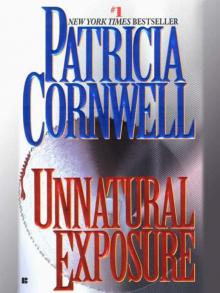 Unnatural Exposure
Unnatural Exposure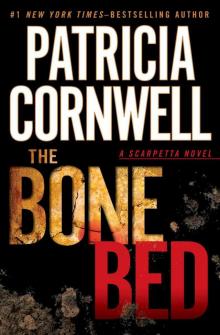 The Bone Bed
The Bone Bed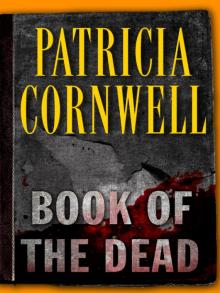 Book of the Dead
Book of the Dead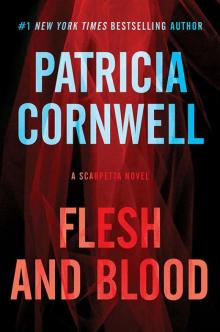 Flesh and Blood: A Scarpetta Novel (Scarpetta Novels Book 22)
Flesh and Blood: A Scarpetta Novel (Scarpetta Novels Book 22)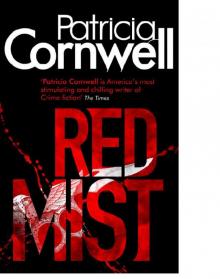 Red Mist
Red Mist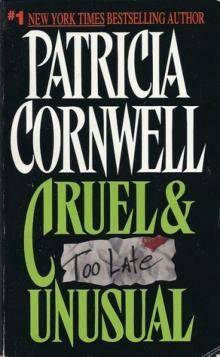 Cruel & Unusual
Cruel & Unusual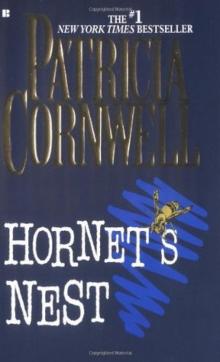 Hornet's Nest
Hornet's Nest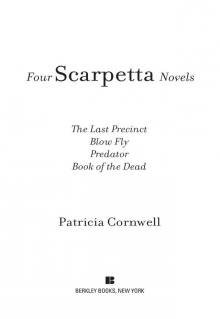 Four Scarpetta Novels
Four Scarpetta Novels Scarpetta's Winter Table
Scarpetta's Winter Table Isle of Dogs
Isle of Dogs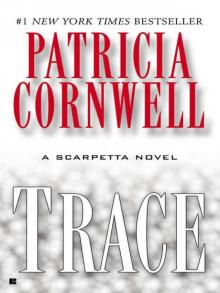 Trace
Trace Postmortem
Postmortem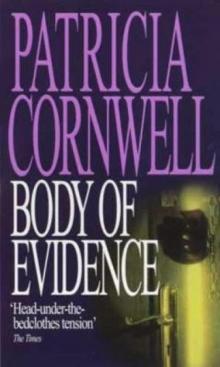 Body of Evidence ks-2
Body of Evidence ks-2 Southern Cross
Southern Cross All That Remains
All That Remains Point of Origin
Point of Origin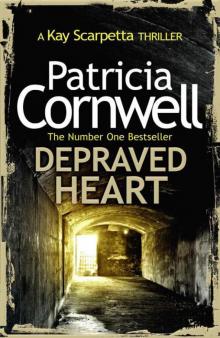 Depraved Heart
Depraved Heart Ruth, a Portrait: The Story of Ruth Bell Graham
Ruth, a Portrait: The Story of Ruth Bell Graham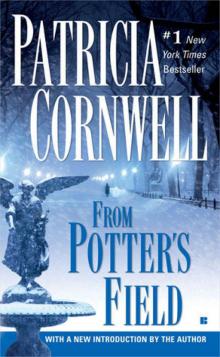 From Potter's Field
From Potter's Field Flesh and Blood
Flesh and Blood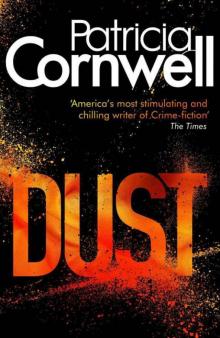 Dust
Dust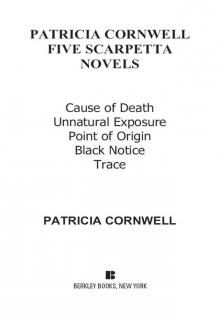 The Body Farm
The Body Farm Port Mortuary
Port Mortuary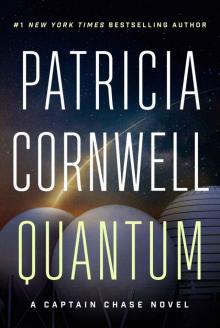 Quantum
Quantum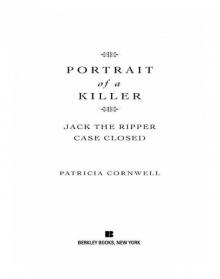 Portrait of a Killer: Jack the Ripper - Case Closed
Portrait of a Killer: Jack the Ripper - Case Closed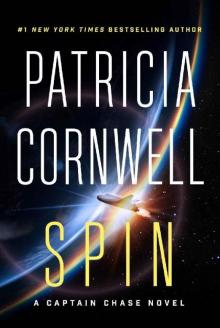 Spin (Captain Chase)
Spin (Captain Chase)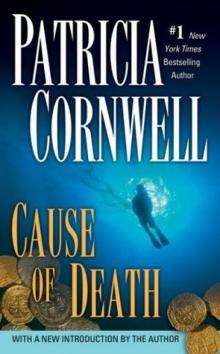 Cause of Death
Cause of Death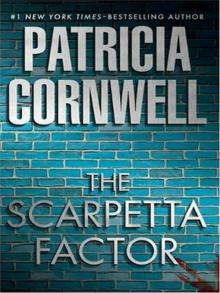 The Scarpetta Factor
The Scarpetta Factor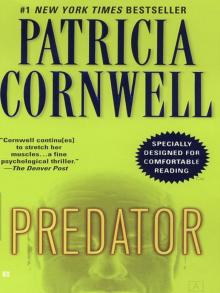 Predator
Predator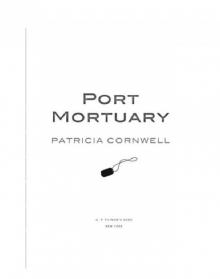 Scarpetta 18 - Port Mortuary
Scarpetta 18 - Port Mortuary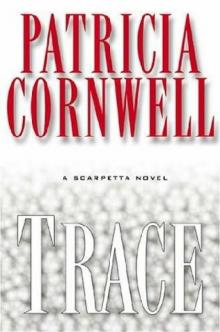 Trace ks-13
Trace ks-13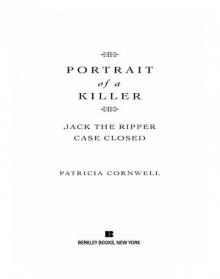 Portrait of a Killer
Portrait of a Killer Cruel and Unusual ks-4
Cruel and Unusual ks-4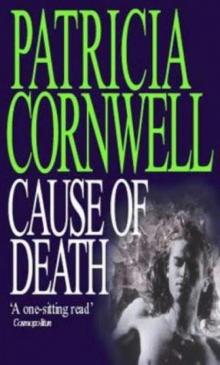 Cause Of Death ks-7
Cause Of Death ks-7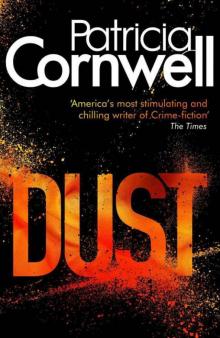 Dust ks-21
Dust ks-21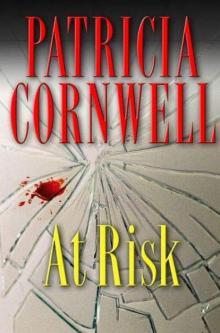 At Risk wg-1
At Risk wg-1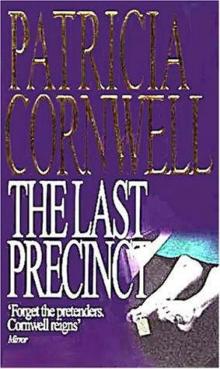 The Last Precinct ks-11
The Last Precinct ks-11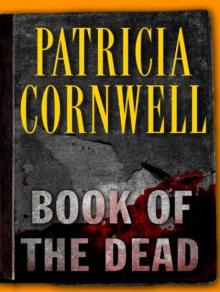 Book of the Dead ks-15
Book of the Dead ks-15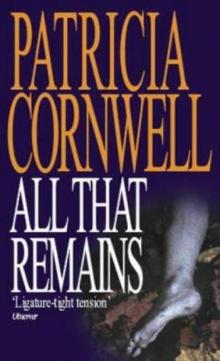 All That Remains ks-3
All That Remains ks-3 Ruth, a Portrait
Ruth, a Portrait Scarpetta's Winter Table (kay scarpetta)
Scarpetta's Winter Table (kay scarpetta) From Potter's Field ks-6
From Potter's Field ks-6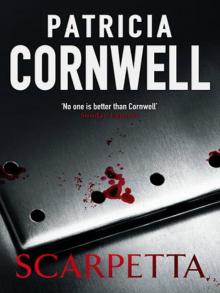 Scarpetta
Scarpetta Isle of Dogs jhabavw-3
Isle of Dogs jhabavw-3 Hornet's Nest jhabavw-1
Hornet's Nest jhabavw-1 The Body Farm ks-5
The Body Farm ks-5 Blow Fly ks-12
Blow Fly ks-12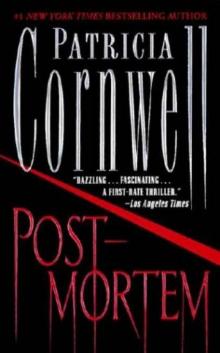 Post Mortem
Post Mortem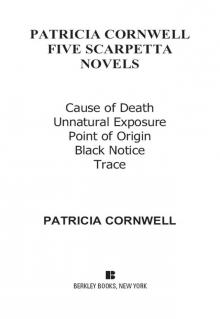 Five Scarpetta Novels
Five Scarpetta Novels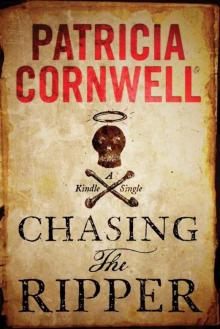 Chasing the Ripper (Kindle Single)
Chasing the Ripper (Kindle Single) Point of Origin ks-9
Point of Origin ks-9 Port Mortuary (2010)
Port Mortuary (2010) Unnatural Exposure ks-8
Unnatural Exposure ks-8 Southern Cross uhabavw-2
Southern Cross uhabavw-2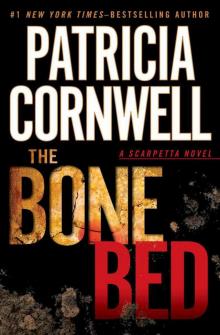 The Bone Bed ks-20
The Bone Bed ks-20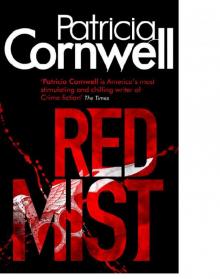 Red Mist ks-19
Red Mist ks-19 Port Mortuary (2010) ks-18
Port Mortuary (2010) ks-18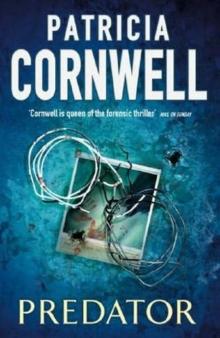 Predator ks-14
Predator ks-14